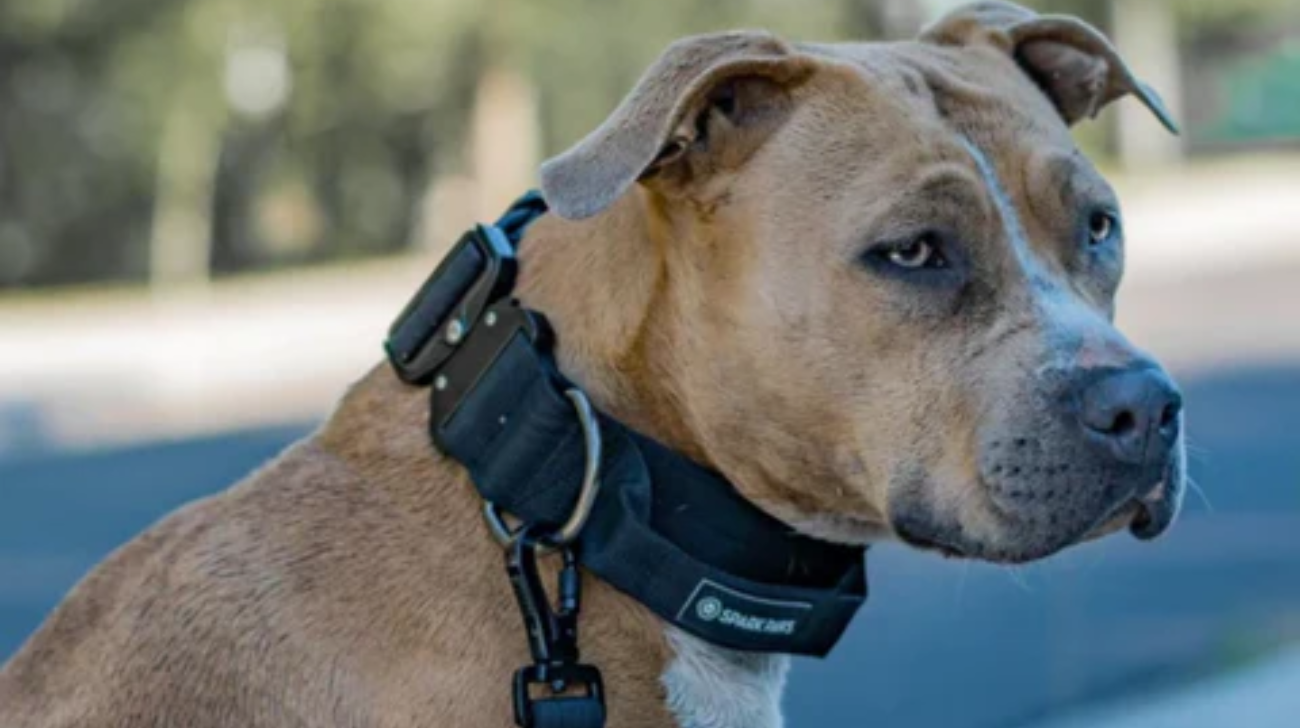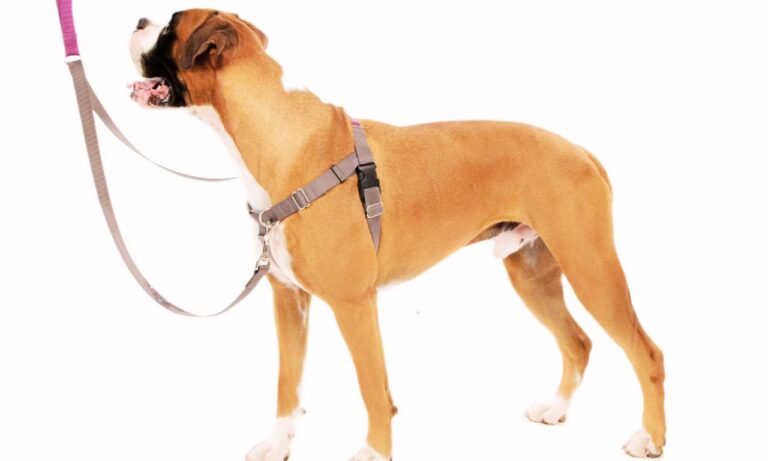Flea collars are commonly used by dog owners to protect their pets from flea and tick infestations. However, these collars may not be as safe as they seem. So, can flea collars make a dog sick? They can cause various allergies and health risks to your dog.
I will explore the possible effects of flea collars on dogs, including allergy symptoms, toxicity risks, and preventive measures to keep your dog safe from flea collars. Discover the ideal fit by learning what size collar for Newfoundland dog to ensure your pet’s comfort and safety.
Blog Highlights
ToggleCan Flea Collars Make a Dog Sick?

One of the most common concerns for dog owners is whether flea collars can make their pets sick. The answer is yes; flea collars can make dogs sick. The chemicals and active ingredients used in many flea and tick collars may cause allergic reactions and, in severe cases, toxicity. This section will discuss how flea collars can negatively affect your dog’s health.
Table: Allergies and Toxicity Risks from Flea Collars in Dogs
Flea Collars and Their Risks: What You Need to Know?
Flea and tick collars often contain a range of chemicals that are designed to kill fleas and ticks. While these chemicals are effective, they can also be harmful to your dog if not used correctly.
1. Chemicals in Flea Collars
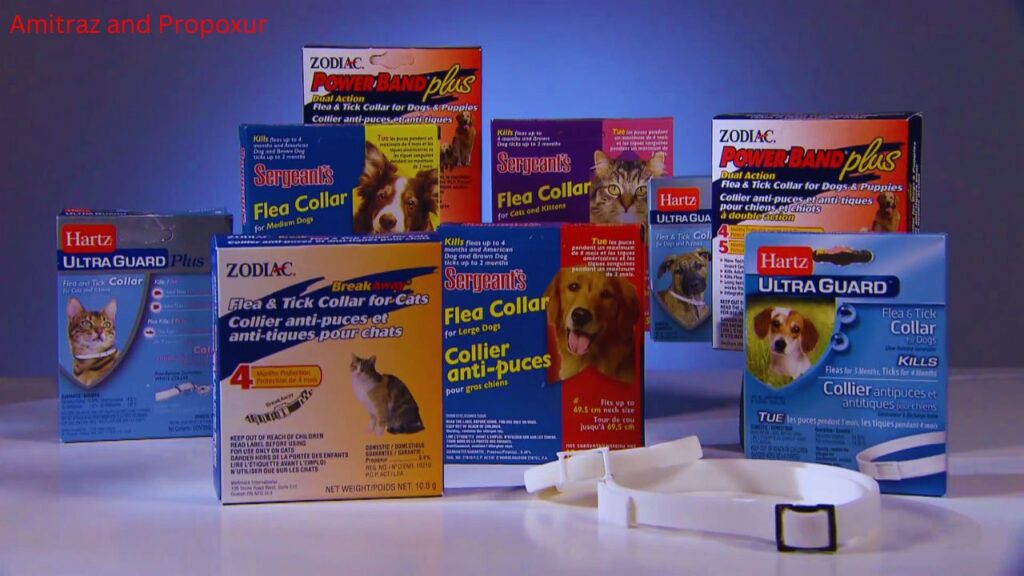
There are generally two groups of chemicals present in flea collars, they are:
Amitraz and Propoxur:
These are common chemicals found in flea collars. They are used to repel and kill fleas and ticks. However, they can be highly toxic if ingested by your dog.
Organophosphates, Carbamates, and Pyrethrin/Pyrethroids:
These are pesticide chemicals that serve the same function of killing fleas and ticks. Unfortunately, they can have toxic effects on dogs, especially if the collar is ingested or improperly applied.
For expert tips on how to fit a collar on a Belgian Shepherd, this guide offers simple steps to ensure your dog’s collar fits securely and comfortably.
2. Risk of Ingestion
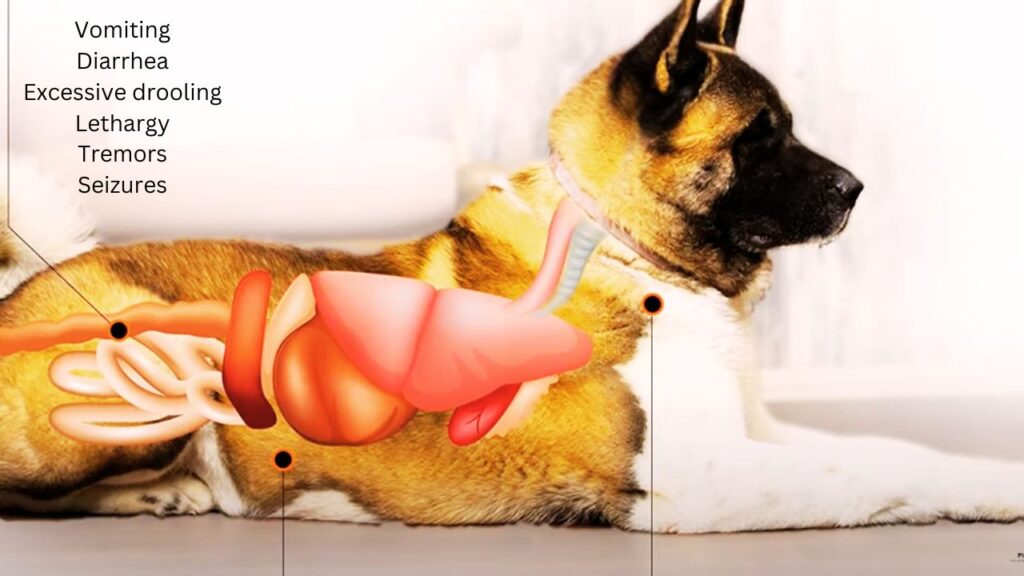
Accidental ingestion of a flea collar can result in severe toxicity. This could happen if your dog licks its fur after the collar has been in contact with the skin or if the dog chews on the collar itself.
The chemicals in flea collars are designed to stay on your dog’s fur for an extended period of time. If your dog ingests these chemicals, it can lead to a variety of health problems, including:
- Vomiting
- Diarrhea
- Excessive drooling
- Lethargy
- Tremors
- Seizures
3. Importance of Neck Health
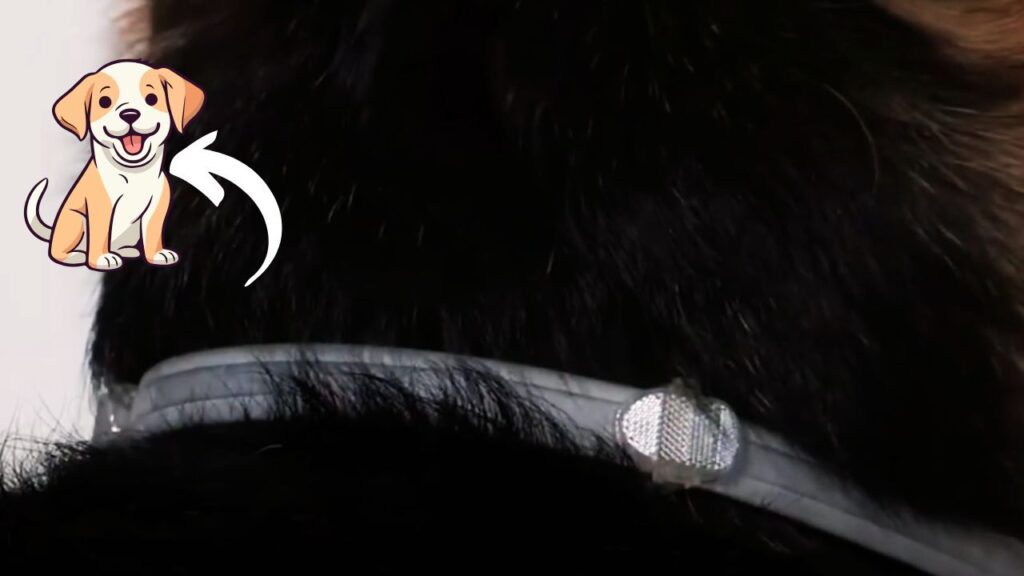
The neck area is vital for your dog’s overall health. Blood flow, nerve flow, and energy in this area support key body functions. Collar injuries, whether from choke collars, prong collars, or even standard flea collars, can cause long-term health problems and reduce your dog’s lifespan.
For detailed guidance on selecting the correct collar size for a Belgian Shepherd, this article provides essential tips to ensure your dog’s comfort and safety.
4. Long-Term Effects of Flea Collars
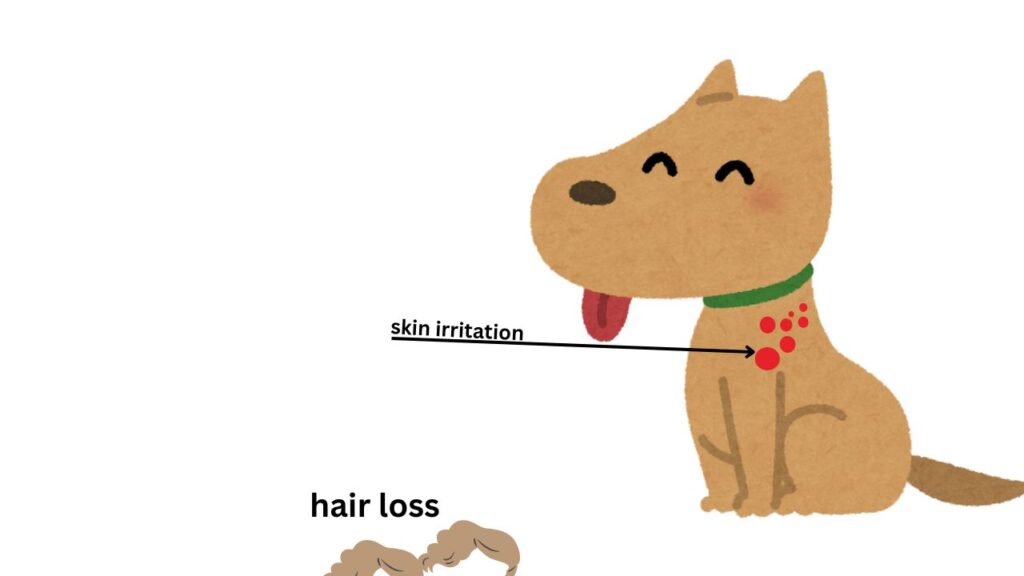
Some dogs are more sensitive to the chemicals in flea collars than others. Prolonged exposure to these chemicals can cause:
No underlines
- Skin irritation: Itchy, inflamed skin around the collar area.
- Hair loss: Continuous scratching or biting at the collar area can lead to bald spots.
- Discomfort: Dogs may experience persistent itching, which could affect their quality of life.
Even if the collar is not ingested, long-term topical exposure can lead to discomfort and allergies. If you notice any signs of irritation or discomfort, it is best to remove the collar immediately.
What to Do if Your Dog Ingests a Flea Collar?
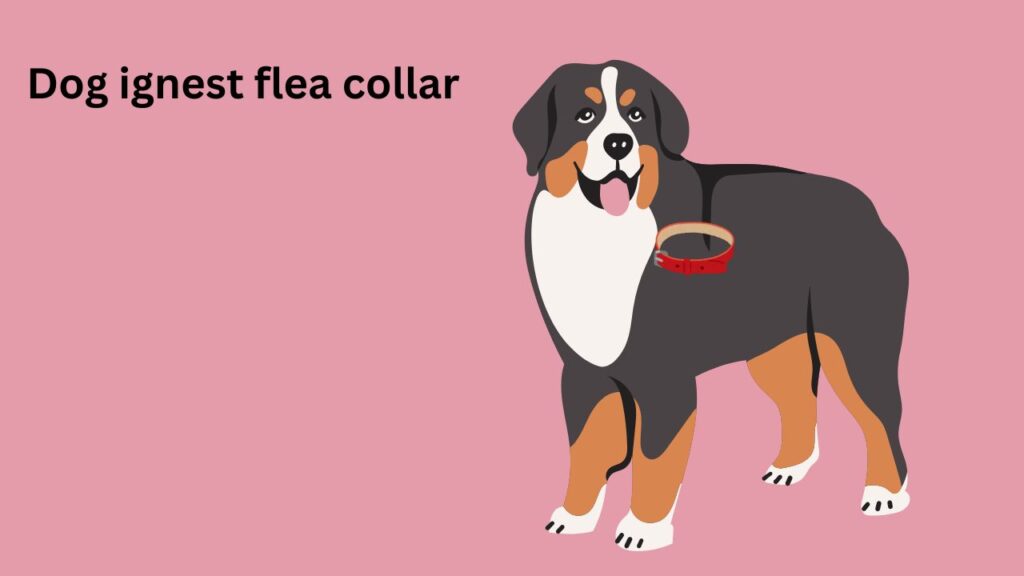
If you suspect that your dog has ingested a flea collar, it is crucial to act quickly. Depending on the situation, your veterinarian may suggest several treatment options:
Immediate Action Steps:
- Inducing vomiting: Your vet may recommend making your dog vomit to remove the toxic substance from the stomach.
- Activated charcoal: This can help absorb the toxins and prevent them from being absorbed into the bloodstream.
- IV fluids: To help dilute the toxins in your dog’s system and promote flushing out of the chemicals.
- Monitor your dog: Keep a close eye on your dog for any signs of distress. Symptoms like vomiting, lethargy, or seizures require immediate veterinary attention.
1.Potential Health Issues from Ingesting Flea Collars
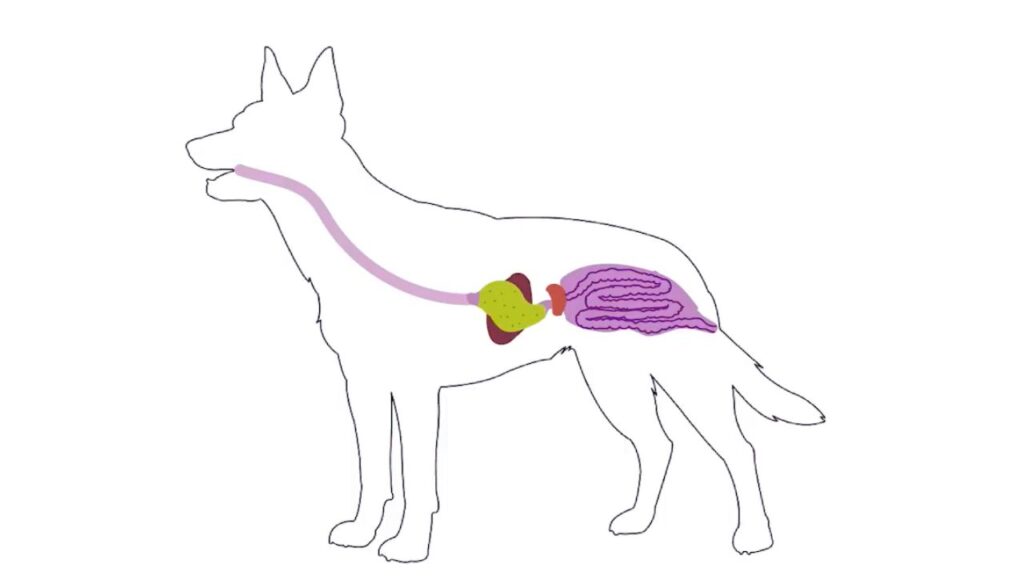
- Toxicity: Chemicals like permethrin, amitraz, or organophosphates can cause toxicity. Symptoms include vomiting, diarrhea, drooling, and lethargy.
- Choking Hazard: If the collar is ingested but not fully chewed, it can cause choking or blockages in the intestines, especially in small dogs.
- Gastrointestinal problems: Exposure to toxic chemicals may also cause stomach issues like bloating or excessive drooling.
Discover the perfect collar size for an Anatolian Shepherd Dog to ensure comfort and security for your furry friend.
2. Preventive Measures to Minimize Risk:
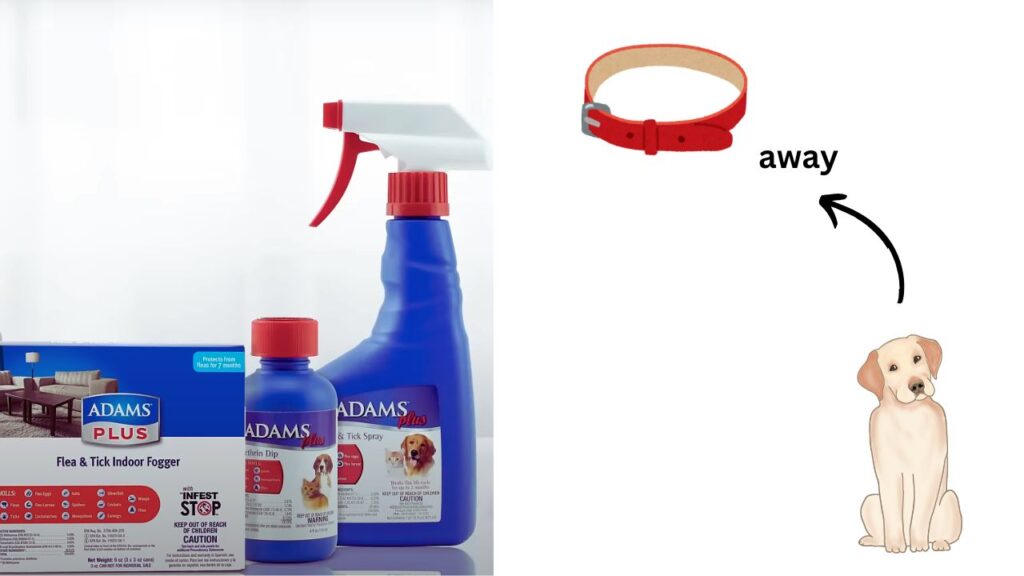
To minimize the risk of your dog getting sick from a flea collar, follow these preventive measures:
- Keep flea collars out of reach: Ensure that your dog cannot access or chew on the collar. Store them in a safe place when not in use.
- Use collars as directed: Always follow the manufacturer’s instructions carefully when applying a flea collar. Do not use the collar for longer than recommended.
- Choose safer alternatives: If you are concerned about the potential risks of flea collars, consider using other flea prevention methods, such as topical treatments or oral medications.
- Supervise your dog: Regularly check the collar for signs of wear and tear. If the collar starts to disintegrate or break down, replace it immediately.
Learn about the size collar for an American Eskimo to ensure a perfect fit and comfort for your dog.
Signs Your Dog May Be Sensitive to Flea Collars
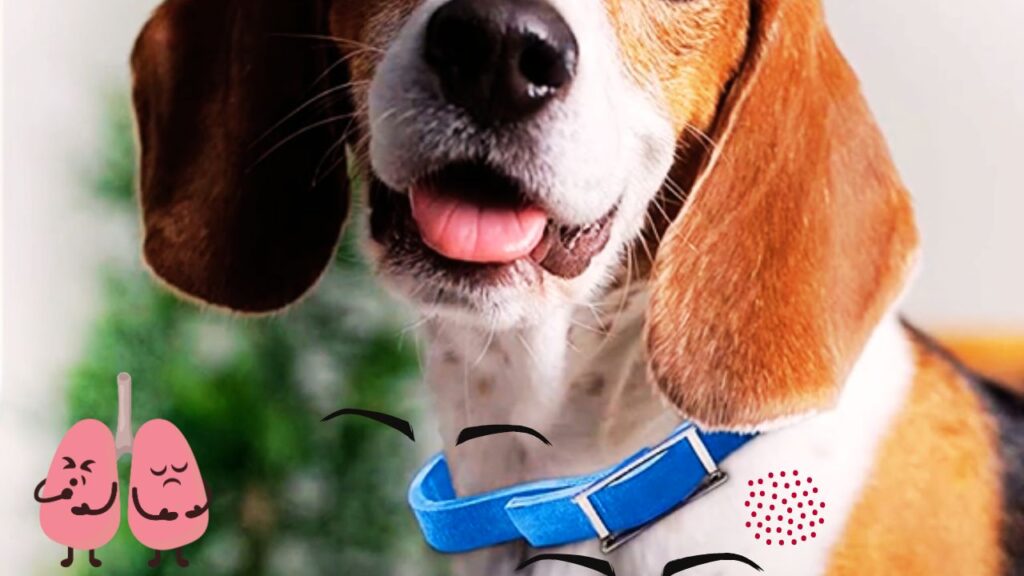
If your dog shows any of the following symptoms after wearing a flea collar, it may be time to remove it:
- Excessive itching or scratching
- Red, irritated skin around the collar area
- Hair loss in the collar region
- Respiratory issues, such as wheezing or coughing
- Behavioral changes, like lethargy or a decrease in activity
If these symptoms persist, consult with your veterinarian to discuss alternative flea prevention options. Learn more about the unique double-layered coat of an Anatolian Shepherd and how to care for it effectively.
Alternative Flea Control Options
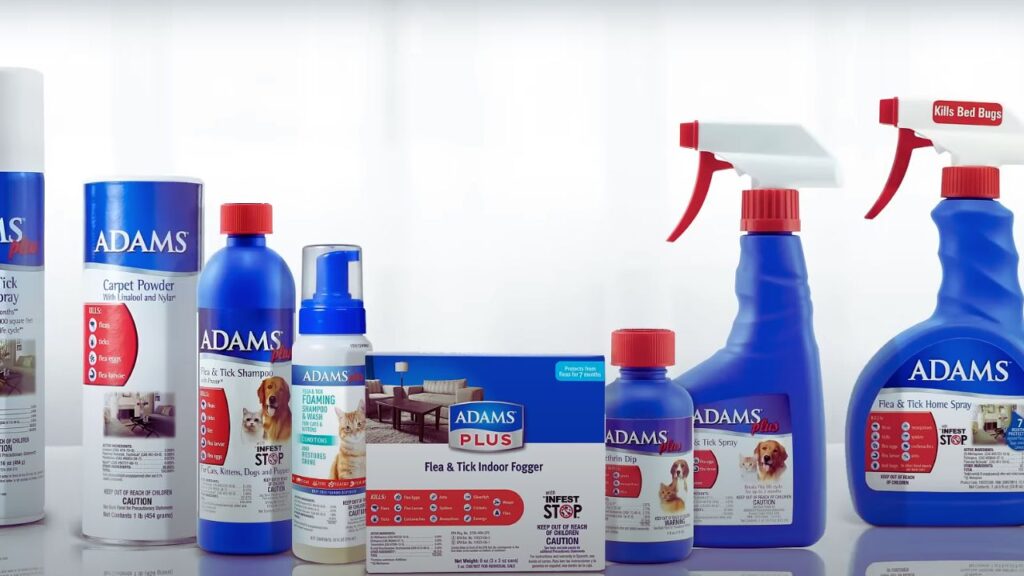
If you’re concerned about the risks of flea collars, there are alternative methods to prevent flea infestations:
- Topical treatments: Products like flea drops can be applied directly to your dog’s skin and are often safer than collars.
- Oral medications: Flea pills or chewables can be an effective and safe way to prevent fleas.
- Flea shampoos: These can help remove fleas from your dog’s coat without using chemicals that stay on the skin for extended periods.
Discover if the American Eskimo is a guard dog and learn about its suitability for protecting your home.
Conclusion: Protecting Your Dog from Flea Collar Risks
Flea collars are a popular choice for dog owners, but they come with several potential risks. The chemicals used in these collars can cause allergic reactions and toxicity, especially if ingested or exposed for long periods. By understanding the risks and following preventive measures, you can ensure that your dog stays healthy and safe while protecting them from fleas and ticks.
If you notice any signs of discomfort or illness after using a flea collar, remove it immediately and seek veterinary care. There are many alternative methods available to protect your dog without the risks associated with flea collars. Hope so, now you know the answer to: Can flea collars make a dog sick? For insights on whether Pomeranians should wear a collar, including considerations for safety and alternatives, check out this informative article.
Preventive Measures:
Take precautions to keep your dog safe, happy, and healthy while managing flea prevention.
- Ensure potentially harmful items, like flea collars, are kept out of pets’ reach to prevent accidental ingestion.
- Be aware that ingesting a flea collar can be dangerous for dogs; immediate veterinary attention is crucial in these cases.
- Visit the veterinarian immediately if your dog ingests a flea collar.
- Inappropriate ingestion or application of flea collars can cause severe clinical symptoms, including:
- Central Nervous System Issues: lethargy, unsteady walking, dilated pupils, seizures, or coma.
- Gastrointestinal Symptoms: drooling, vomiting, diarrhea, or bloating.
- Cardiac Symptoms: irregular heart function or other heart-related issues.
Taking swift action ensures your dog receives the care they need to recover from these potential toxic effects. For a comprehensive guide on what kind of harness is best for a Pomeranian, including comfort and safety tips, check out this article.

